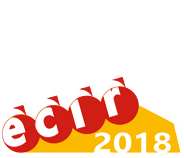ecir 2020 论文列表
Advances in Information Retrieval - 42nd European Conference on IR Research, ECIR 2020, Lisbon, Portugal, April 14-17, 2020, Proceedings, Part I.
|
An Attention Model of Customer Expectation to Improve Review Helpfulness Prediction.
Semantic Path-Based Learning for Review Volume Prediction.
Biconditional Generative Adversarial Networks for Multiview Learning with Missing Views.
bias goggles: Graph-Based Computation of the Bias of Web Domains Through the Eyes of Users.
Answering Event-Related Questions over Long-Term News Article Archives.
KvGR: A Graph-Based Interface for Explorative Sequential Question Answering on Heterogeneous Information Sources.
Temporal Latent Space Modeling for Community Prediction.
Quantum-Like Structure in Multidimensional Relevance Judgements.
Accelerating Substructure Similarity Search for Formula Retrieval.
Curriculum Learning Strategies for IR.
Using Image Captions and Multitask Learning for Recommending Query Reformulations.
Utilising Information Foraging Theory for User Interaction with Image Query Auto-Completion.
A Regularised Intent Model for Discovering Multiple Intents in E-Commerce Tail Queries.
What Can Task Teach Us About Query Reformulations?
Generation of Synthetic Query Auto Completion Logs.
Diagnosing BERT with Retrieval Heuristics.
Learning to Rank Images with Cross-Modal Graph Convolutions.
Early Detection of Rumours on Twitter via Stance Transfer Learning.
Recognizing Semantic Relations: Attention-Based Transformers vs. Recurrent Models.
Reinforced Rewards Framework for Text Style Transfer.
Motion Words: A Text-Like Representation of 3D Skeleton Sequences.
Visual Re-Ranking via Adaptive Collaborative Hypergraph Learning for Image Retrieval.
Interactive Learning for Multimedia at Large.
MEMIS: Multimodal Emergency Management Information System.
Multimodal Entity Linking for Tweets.
Relevance Ranking Based on Query-Aware Context Analysis.
A Framework for Argument Retrieval - Ranking Argument Clusters by Frequency and Specificity.
Counterfactual Online Learning to Rank.
You Can Teach an Old Dog New Tricks: Rank Fusion applied to Coordination Level Matching for Ranking in Systematic Reviews.
A Computational Approach for Objectively Derived Systematic Review Search Strategies.
VGCN-BERT: Augmenting BERT with Graph Embedding for Text Classification.
A Mixed Semantic Features Model for Chinese NER with Characters and Words.
Multi-components System for Automatic Arabic Diacritization.
Inductive Document Network Embedding with Topic-Word Attention.
Learning Based Methods for Code Runtime Complexity Prediction.
Beyond Modelling: Understanding Mental Disorders in Online Social Media.
Moving from Formal Towards Coherent Concept Analysis: Why, When and How.
Leveraging Schema Labels to Enhance Dataset Search.
Domain-Independent Extraction of Scientific Concepts from Research Articles.
TransRev: Modeling Reviews as Translations from Users to Items.
Semantic Modelling of Citation Contexts for Context-Aware Citation Recommendation.
Joint Geographical and Temporal Modeling Based on Matrix Factorization for Point-of-Interest Recommendation.
Recommending Music Curators: A Neural Style-Aware Approach.
Axiomatic Analysis of Contact Recommendation Methods in Social Networks: An IR Perspective.
Evaluating the Effectiveness of the Standard Insights Extraction Pipeline for Bantu Languages.
Joint Word and Entity Embeddings for Entity Retrieval from a Knowledge Graph.
Patch-Based Identification of Lexical Semantic Relations.
Learning Advanced Similarities and Training Features for Toponym Interlinking.
Graph-Embedding Empowered Entity Retrieval.
Context-Guided Learning to Rank Entities.
A Hierarchical Model for Data-to-Text Generation.
Variational Recurrent Sequence-to-Sequence Retrieval for Stepwise Illustration.
ReadNet: A Hierarchical Transformer Framework for Web Article Readability Analysis.
Improving Knowledge Graph Embedding Using Locally and Globally Attentive Relation Paths.
Seed-Guided Deep Document Clustering.


